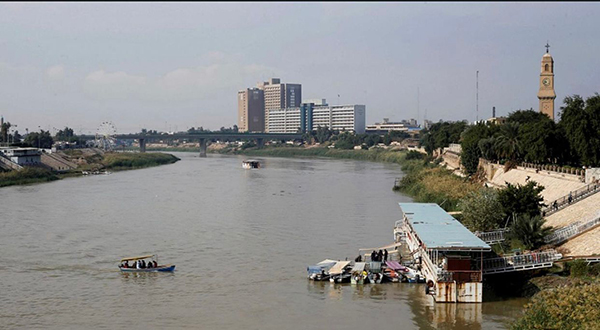by Ademola Adetunji
The world seems to be surprised that Covid-19 is contained in some African countries. Compared to Western and some Asian countries, the health system in many African countries is poorer. Many hypotheses and predictions are circulating that the poor African continent is on the verge of collapse. But the continent of Africa was better prepared for the outbreak than some developed continents like Europe, Asia and North America. Africa seems to have learned from past experiences.
Nigeria is a sovereign state in West Africa, which borders Niger, Chad and Cameroon and has a population of around 200 million people. Nigeria is considered “Africa’s giant” because it is the most populous country on the continent. Its wealth and resources are greater than those of most African countries. Nigeria is still Africa’s largest oil producer and rich in other natural resources such as natural gas, tin, iron ore, coal, limestone, niobium, lead, zinc and arable land. The oil and gas sector generates around ten percent of the gross domestic product and oil export revenues account for around 86 percent of total export earnings.
About 3.1 percent of Nigeria’s population consists of the elderly. Apart from this high-risk group, there are around 6.4 million people in Nigeria over the age of 65 who are at an increased risk of infection, as well as people with pre-existing health conditions such as diabetes, high blood pressure, other Cardiovascular diseases and cancer.
How was the deadly disease contained in Nigeria? The fight against the Ebola infection, which broke out in Nigeria in 2014, laid an important base. More developed and wealthier countries can learn from the experience of that time. The corona virus has a lower mortality rate than Ebola and is also considered less contagious. Nigeria, however, had focused its health management on combating it. The state health authority NCDC was highly sensitive to the epidemic and had the tools for it. Government efforts and the entire public sector have been trained to find, test, isolate and treat infected people through the fight against Ebola. The NCDC was able to effectively coordinate the 36 states and the FCT (Federal Capital Territory) at all levels.
Overall, the Nigerian health system is adequately funded, even though top government officials are poorly managing limited money. Poor public water supply and sanitation would also have been a problem if individual people, business organizations and celebrities had not donated food and hygiene articles and contributed to raising awareness in their communities. The Nigerian federal states also set up many isolation centers. Additionally, the rapid reaction of the Nigerian federal government also helped to contain the virus.
Nigeria’s first index case was an Italian citizen working in Nigeria who entered the commercial city of Lagos from Milan on February 25, 2020. The government ordered curfews in some states, which slowed down the spread of the virus. For example, President Muhammadu Buhari ordered a shutdown of the Nigerian commercial center Lagos, the neighboring state of Ogun and the capital Abuja. After the virus was discovered, almost 30 million people had only 24 hours to prepare for this lockdown, and then had to stay at home.
This far reaching decision was made for the state of Lagos. Africa’s largest business center is home to over 20 million people. Many Nigerians responded with a certain kind of glee that Covid-19 protection was executed primarily in the state in which the country’s elite also lives. Victims of the virus included President Buhari’s chief of staff, politicians, heads of government agencies, the former state governor, former ambassadors and their helpers or relatives.
Since recording began in February, the number of corona cases has increased daily. On July 21, 37,787 cases were recorded, according to the Nigerian Center for Disease Control (NCDC). 15,333 people are considered to have recovered, and 813 succumbed to the disease. 29,193 cases are confirmed for Ghana, and 158 deaths were reported there.
At the end of July, according to data from the World Health Organization (WHO) and local authorities in Africa, there were more than 750,000 people with Covid-19. Experts speak of a high number of unreported cases because most countries test little. The danger is growing that the disease will “overwhelm the weak health systems on the continent,” said Matshidiso Moeti, WHO chief for Africa. The consequences of Corona are particularly devastating for the poorest. They cannot work because of the curfew. There is no social security.
tun072202
Impressionen zum Leben in Zeiten der Corona-Pandemie: Foto: tünews INTERNATIONAL; Mostafa Elyasian, 25.06.2020



